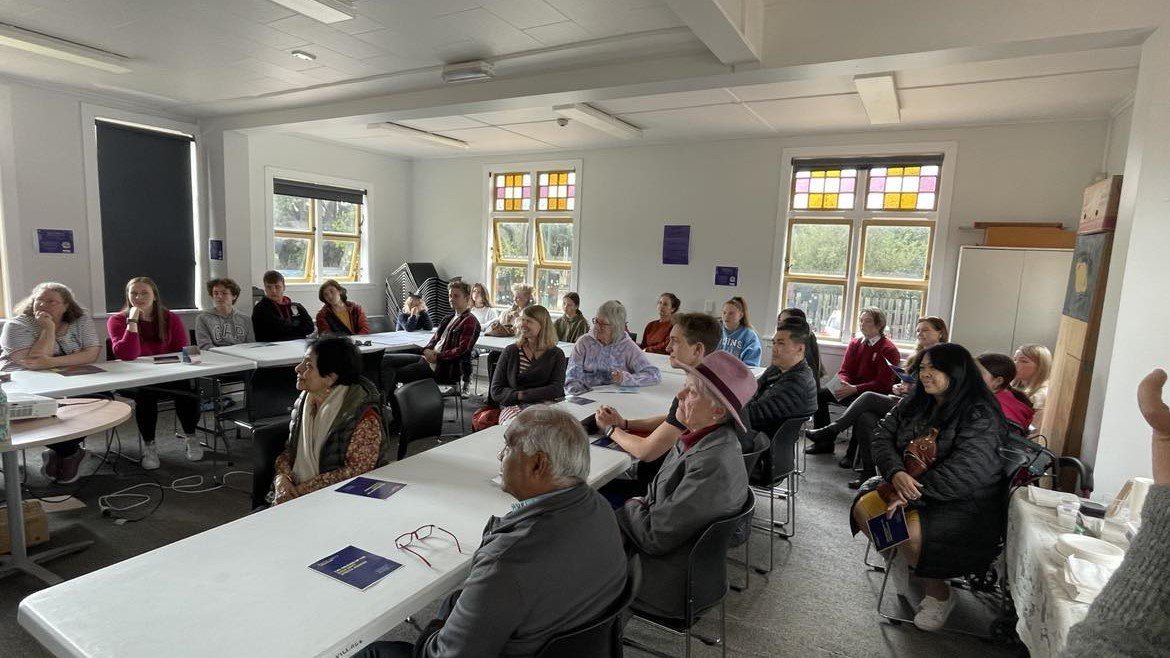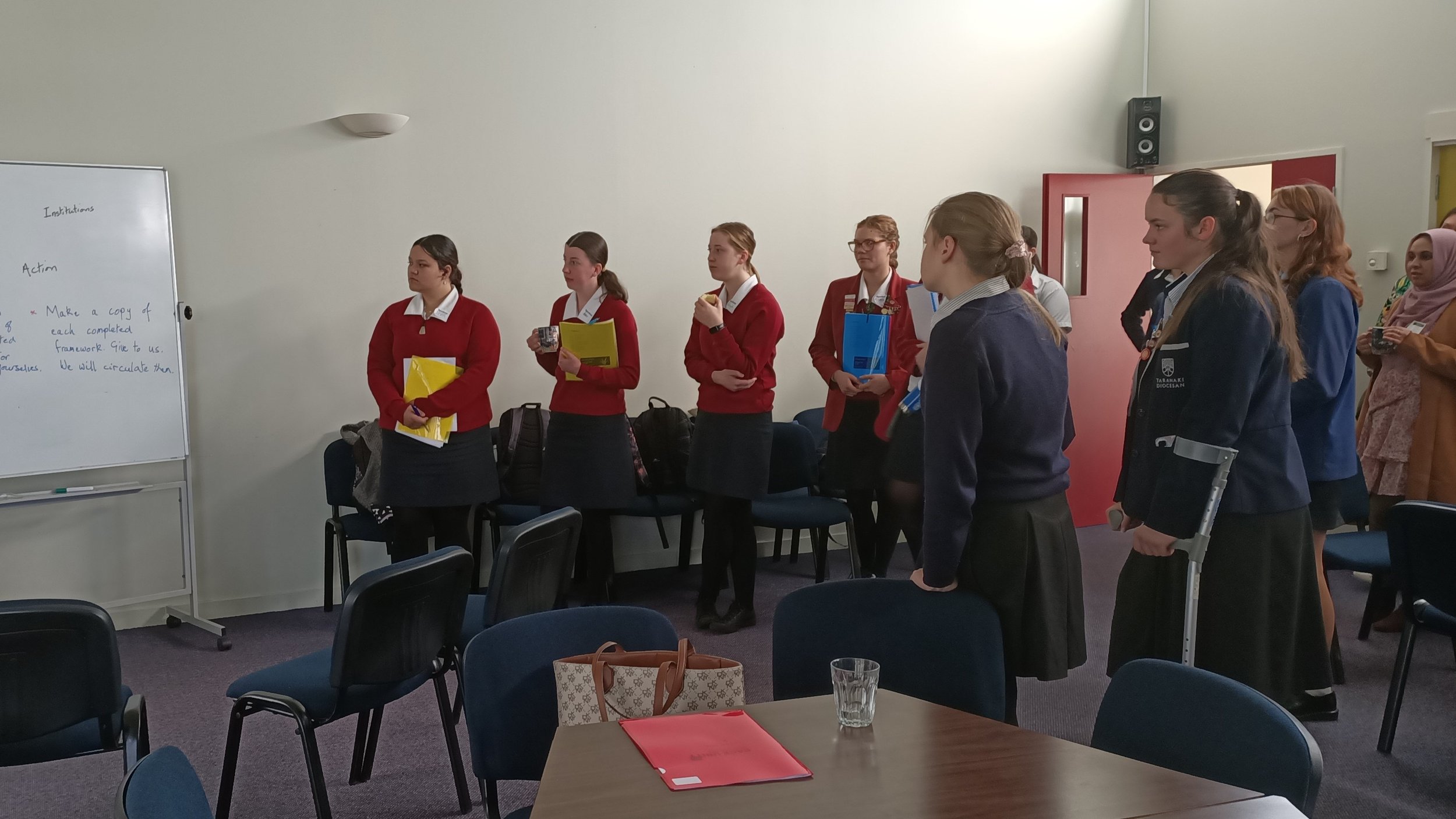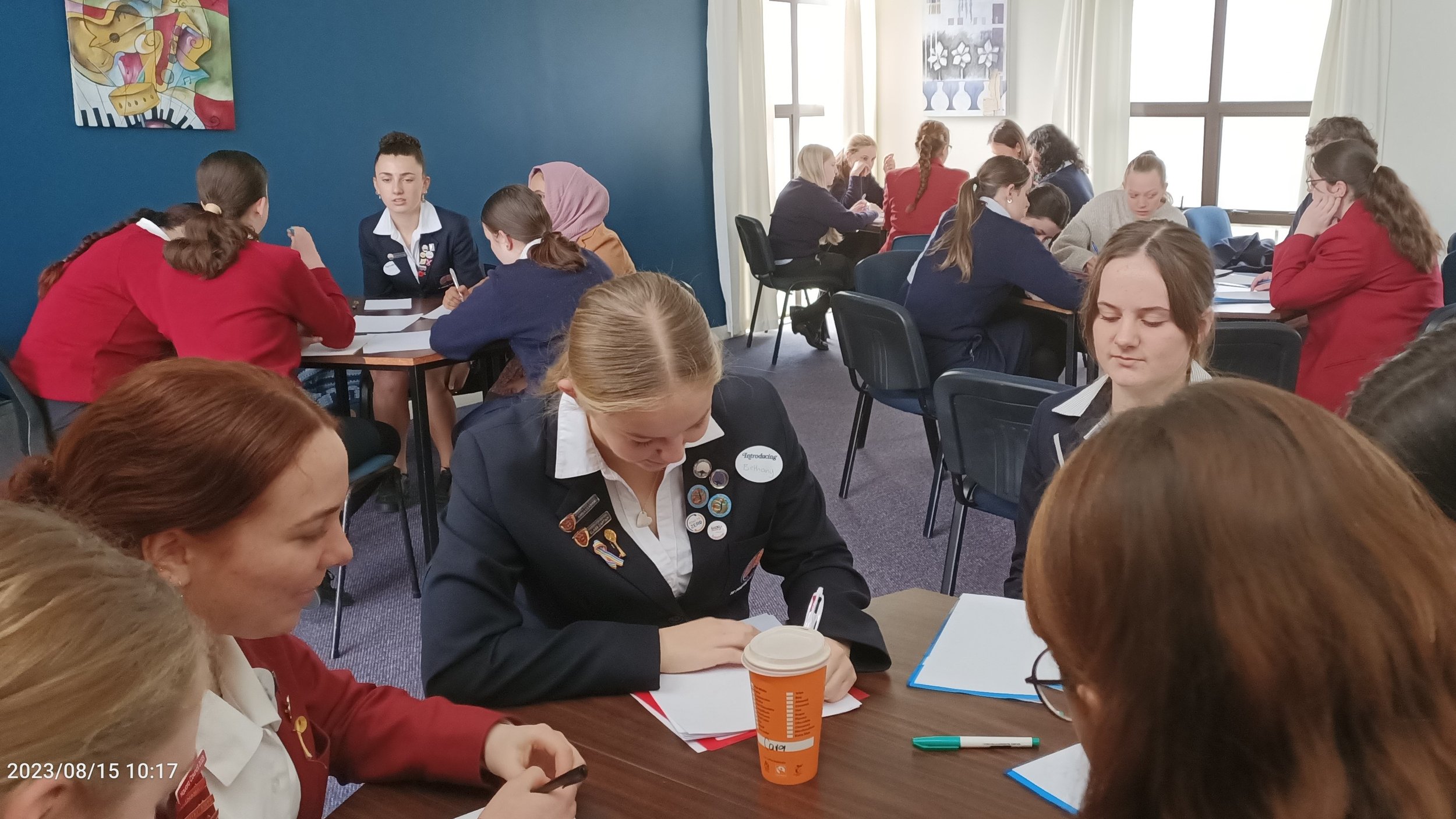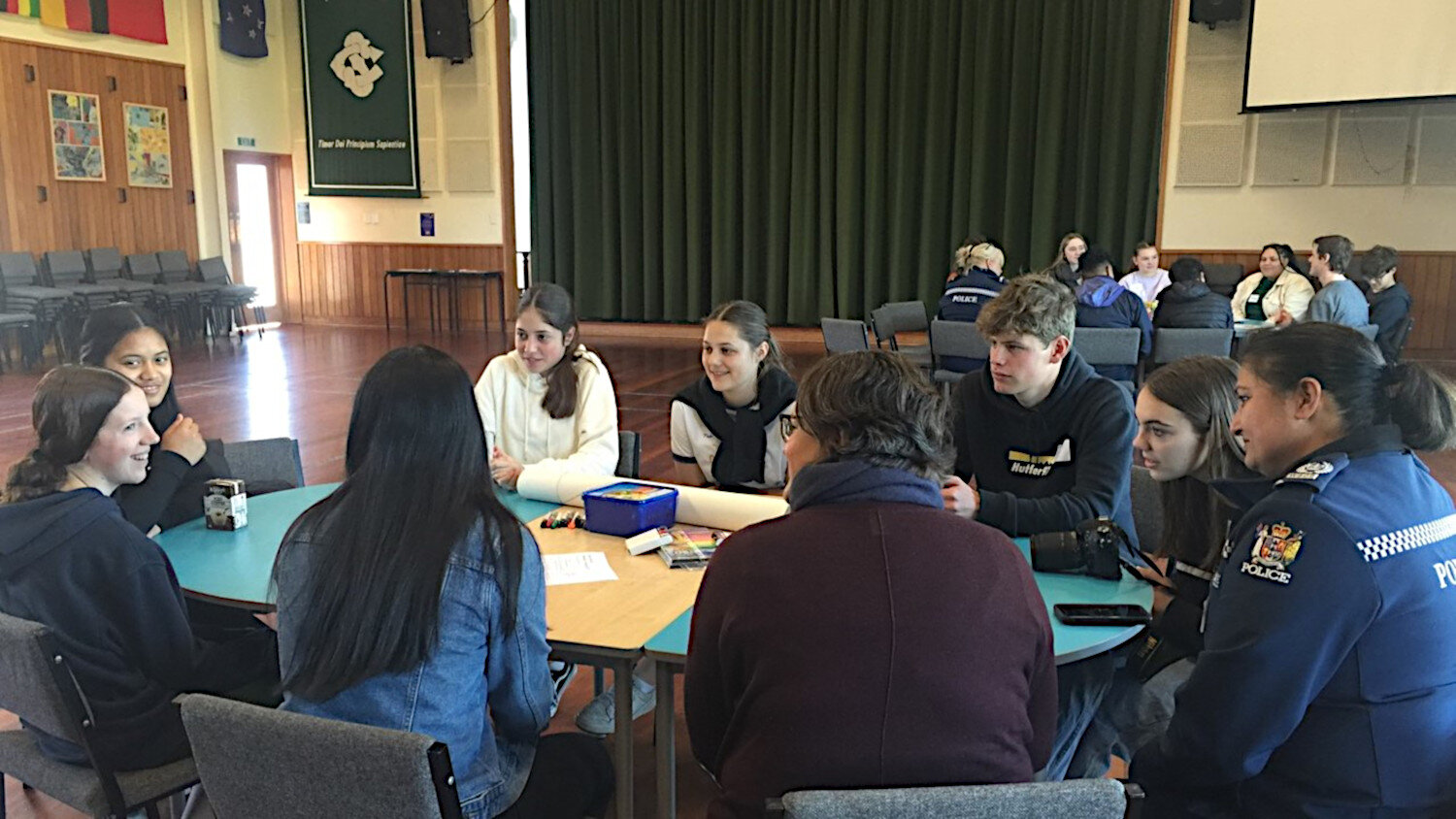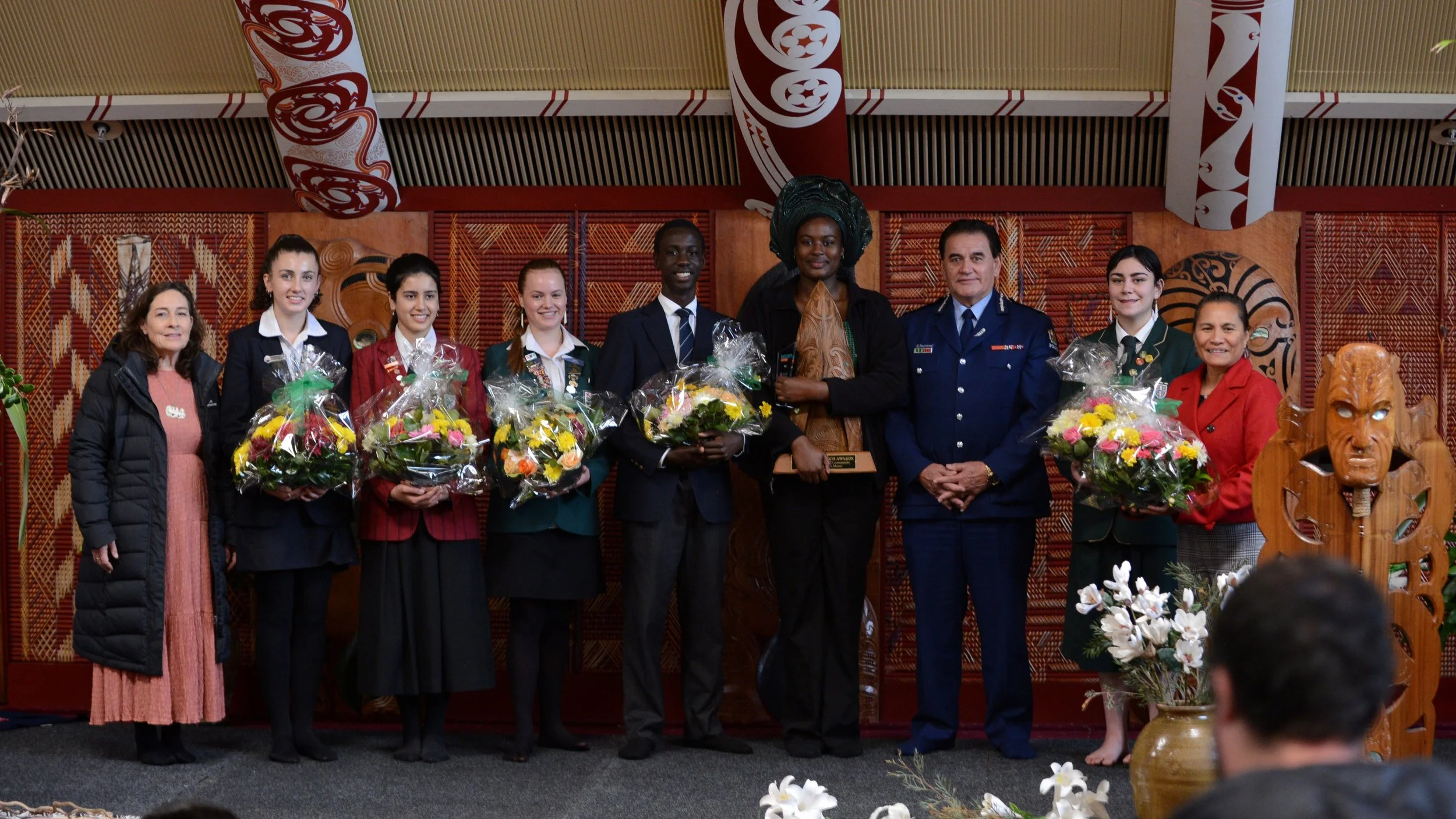Ripple effects of Race Unity Speech Awards
Since 2001, the Race Unity Speech Awards have celebrated diversity and inclusion and fostered understanding among individuals from all walks of life. The Bahá'í Office of Public Affairs (OPA) organises the awards event each year, and delights in knowing it has become a platform for young minds to voice their thoughts on race, unity, and the path to a more inclusive society. In this article, the Office shares details of the uplifting ripple effects of the 2023 event.
Beyond the Awards
The Race Unity Speech Awards were started in support of Race Relations Day back in 2001, in memory of the late Hedi Moani. Three things that were dear to Hedi's heart were fostering positive race relations, oratory, and encouraging young people to build their capacities. Fast forward to 2023, these three elements are still the focus of the speech awards. Progress has been made in the development of the awards over the years, including the introduction of national and regional hui. As each year goes by more and more organisations become aware of the outstanding rangatahi (youth) who participate in the speech awards and are eager to hear what these senior high school students have to say about race relations and eradicating racism in Aotearoa.
The speech awards are officially over for the year after ‘Nationals’ weekend in June, however, the ripple effect goes far beyond this date. From July to September, the OPA recruited the following spaces for the rangatahi voices to be amplified. On 17 July the national champion, Esther Sovincet, captivated her audience of 40 RTLBs (Resource Teachers: Learning and Behaviour) with her exceptional speech at a teacher-only day for the Tuawhitu o Akarana RTLB cluster in Auckland. Subsequently on 22 July, semi-finalist, Lena Ormsby, presented her stirring speech in front of no less than 250 delegates at a Māori Tamil Hui organised by the Aotearoa NZ Federation of Tamil Sangams in Auckland.
Teachers of the Tuawhitu o Akarana RTLB cluster listen attentively to a race unity speech
Additionally, on the 1st of September, Hamilton's regional champion presented her thought-provoking speech at the launch of Welcoming Week in the presence of Mayor Paula Southgate, various city council officials, and an audience of at least 120 people. The momentum continued to build when, on 21 September, selected rangatahi, Esther Sovincet and Taila Luani, reduced some of their audience to tears with their speeches at a Ministry of Education Diversity Symposium to another group of 15 secondary school teachers. This was hosted by one of our cherished Race Unity Speech Awards alumni, Nimish Singh.
Furthermore, there have been three regional hui in the past few months, in Taranaki, Hamilton, and Rotorua, with 98 participants, mostly youth, collectively across these three regions engaging in robust kōrero on what actions are needed to eradicate racism in Aotearoa.
As you can see, the Race Unity Speech Awards go far beyond the awards themselves, connecting hundreds of people in a few short months to the discourse on eradicating racism, fostering social cohesion, and achieving race unity in Aotearoa.
The collective efforts of the coordinators, teachers, rangatahi and sponsors have helped to raise the Race Unity Speech Awards to stand as a beacon of the oneness of humanity during these troubled times.
Taranaki Race Unity Hui
Mentioned in the article above, the Taranaki Race Unity Hui was a great success, and the Bahá'ís of New Plymouth recently shared a report about this gathering.
Attendees of the Taranaki Race Unity Hui take part in discussions
Held in Stratford on 15 August at the Diocesan School for Girls, this event garnered enthusiastic support from a diverse group of participants. The 21 girls who attended this event represented five different schools, including Sacred Heart Girls’ College, New Plymouth Girls’ High School, Diocesan School for Girls, Te Paepae O Aotea, and Ōpunake High School. Accompanied by two teachers and a principal, their presence was a testament to the commitment of educational institutions to promote race unity and diversity. Additionally, a representative from the Ministry of Ethnic Communities, a representative from New Plymouth District Council, and an Interim Operations Co-Lead from the Western Institute of Technology at Taranaki (WITT) also graced the event with their presence.
Throughout the day, all the students actively participated, sharing their thoughts and ideas freely and creatively. There was a palpable sense of purpose and a genuine desire to instigate change and take the lead in creating the change they wish to see. They recognised the need for each of them to take responsibility for their actions and actively seek ways to support their own learning about diversity while helping others join them on this transformative journey.
As the day progressed, there was a notable shift from a focus on eliminating racism to a greater emphasis on fostering acceptance and excitement about the new perspectives and opportunities that embracing diversity offers to everyone.
Participants of the event collaborating on ideas to facilitate change
The majority of the day was spent in small groups, each consisting of about six students. These groups collaboratively worked together to share their ideas and develop shared goals that they could then bring into the wider community. Remarkably, students from various schools overwhelmingly preferred to remain in their mixed groups, even when given the option to form school-based groups.
By the end of the day, each group had at least one idea ready for presentation to the teachers, principal, council staff, and the WITT representative. Some groups had multiple ideas and chose to combine them into larger projects, emphasising their dedication to creating meaningful change.


